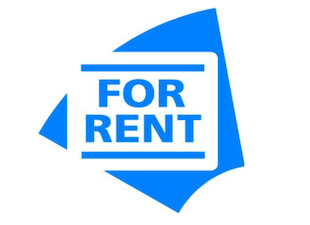Please e-mail your comments to: T_R_Oglodyte@yahoo. com. A timeshare is a program in which a group of individuals shares use of a property by dividing amongst themselves the rights to utilize the residential or commercial property for particular period. Although the home is usually a domestic job such as a condo, developers have used the timesharing principle to other kinds of residential or commercial properties, such as houseboats, camping areas, and leisure vehicle parks.
To establish the timeshare, the designer "divides" occupancy of each of the systems into time-based intervals. The developer then sells these periods to purchasers, so each owner of a period receives the right to utilize a specific system for a specific time period representing the period they bought.
Through this shared use, the owners have guaranteed accommodations in the residential or commercial property, without carrying the financial and property management concerns related to a traditional ownership of such a residential or commercial property. Timeshare periods are generally one week long; a few timeshare tasks, however, use other ownership fractions, such as one-tenth or one-quarter ownerships.
In keeping with this convention, through the rest of this course I typically describe timeshare intervals as "timeshare weeks" or "weeks". In addition to the purchase rate, timeshare owners likewise pay an annual charge for property upkeep and management. Many timeshare jobs also book a couple of one weeks usage of each unit for maintenance and repair work.
Not known https://andredfkg265.shutterfly.com/54 Facts About How Much Does Timeshare Exit Team Cost
The timeshare market has likewise had its share of dishonest and unethical resort designers and operators. Subsequently, timesharing has a bad credibility with numerous people. Although the timeshare market has actually improved its sales discussions, customer awareness and education is still important for owners to prevent being misled and to obtain the most value from their timeshare purchases.
Despite these perceptions, timesharing is a great item for lots of people. Timesharing makes resort ownership possible for many individuals who otherwise would not be able to enjoy such facilities, and there are numerous satisfied timeshare owners (including the author). After buying one system and enjoying it, numerous timeshare owners have bought extra timeshares (how to get out of westgate timeshare).
Since of the bad impression lots of people have of timesharing, timeshare designers have developed other names for timeshare tasks, such as "Getaway Ownership" or "Fractional Ownership". These programs are still timeshare jobs, and many of the Click here exact same principles use. While all timeshare programs offer you, as the owner, a right to occupy a facility for a given duration (typically one week every year or every other year), there are numerous differences in how this is done.
In a fixed week system, your occupancy right is for the exact same week, and normally the same unit, every year. For instance, if your timeshare ownership were for week 34 in Unit 253, you would have an ensured right to occupy System 253 for the 34th week of the year.
The Buzz on How To Get Out Of A Timeshare Ownership
So, if the check-in day for System 253 is Saturday, then week 34 begins on the 34th Saturday of the year, with check-out on the 35th Saturday of the year.) As can be expected, some weeks are more popular than others; this is normally reflected in the purchase rate for the timeshare unit.

A floating right works if you do not want your usage restricted to a given week every year. Because all other owners that share your float period can schedule any time throughout that duration, if you postpone making an appointment you might find that all of the systems have currently been reserved for the times that you wish to reserve (how do i get out of a timeshare).
Resorts set their own policies as to how far ahead of time their owners can schedule their drifting week uses. This lead-time can be as low as 9 months or as much as two years in advance of the check-in date. Lots of resorts will require advance payment of maintenance costs to book a float week, particularly if you plan to use the week in a timeshare exchange.
Because the specific week transferred with an exchange business straight affects the exchange worth of the deposit, the procedures your resort uses to assign floating weeks for exchanging will influence the kinds of exchanges you can complete with your timeshare. A couple of timeshare tasks use a turning week system. In this kind of program, your use week changes from year to year on a repaired schedule.
Facts About How Does Rci Timeshare Work Uncovered
In Year 4, the cycle would begin over again with week 9. Rotating weeks permit all owners a chance to use the resort during the most popular periods. Another major difference is whether the timeshare is a deeded interest or a "right-to-use" plan. Most deeded programs divide ownership of each unit into specific week increments, and as a purchaser, you really buy a fractional ownership of the unit.
In many cases, the deed may simply communicate a particular fractional ownership interest corresponding to the ownership period without tying the ownership to a specific week, for example, a concentrated 1/52nd interest in System 253. Considering that your ownership in a deeded residential or commercial property is ownership of genuine estate, you can offer the timeshare system, give it away, or bequeath it to successors, simply as with other real residential or commercial property.
At the end of that duration, the use rights go back to the homeowner. Typically you can offer, contribute, or bestow a "right-to-use" agreement, but the expiration date will remain the same. Because lots of countries either prohibit or severely limit foreign ownership of realty, a right-to-use program might be the only way to successfully develop a timeshare project in those nations.
These documents are normally referred to as the "program files". For a deeded property, the program files are typically in the kind of Codes, Covenants and Limitations (CCR) that connect to the ownership of each timeshare interval and are binding on all owners at the residential or commercial property (including subsequent purchasers). For a right-to-use property, the jobs selling timeshares right-to-use agreement will either contain the program files or will include them by referral.
The 7-Minute Rule for How To Rent Out A Timeshare

In a deeded floating program, the CCR or program files will define that the owner's use is a floating right that should be booked, which the owner does not receive any unique choices to schedule the unit and week that appears on their deed. A vital difference between deeded and right-to-use properties includes ownership of the resort.
When the resort is very first opened, the developer owns the weeks and, hence, manages the job. As the designer offers timeshare units, the developer's ownership level decreases, and control of the property usually transfers to the owners. If the property manager defaults or declares bankruptcy, you and your fellow owners will still own the home as reflected in your deeds.
The developer generally maintains the right to offer or transfer the home, consisting of the timeshare program, to a 3rd celebration. The developer may likewise be able to unilaterally change aspects of the timeshare program, increase yearly charges, or impose unique assessments. Owners of right-to-use periods may have little or no ability to avoid or influence such actions by the developer or operator.